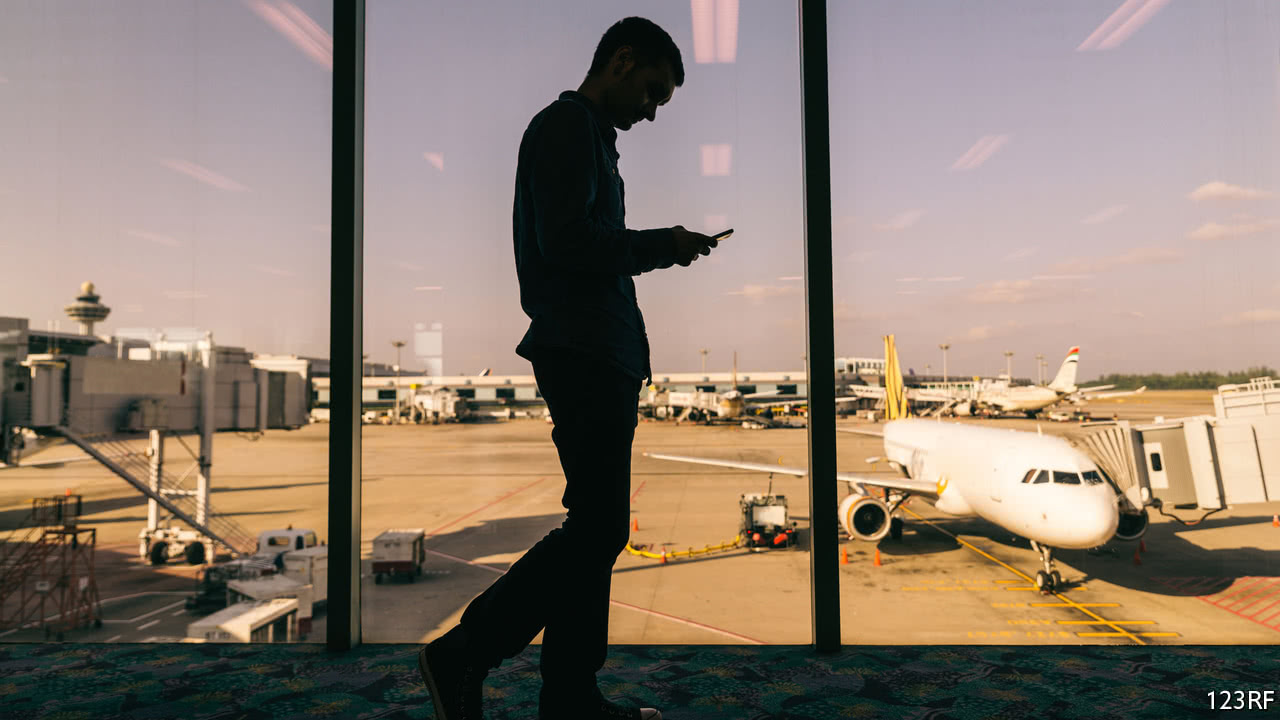
A friend of Gulliver’s recently received some devastating news, in the form of a change to company policy. No longer would he and his co-workers be able to book their own flights and file for reimbursements. Instead, the firm would buy all employees’ plane tickets from the start.
On the face of it, this is a convenient change. It saves staff time by ensuring that they do not have to fill in tedious expense forms. But many business travellers may not see it that way. A study from Phocuswright, a travel-research firm, finds that more and more employees are booking their own travel and filing for reimbursements. Sometimes doing so allows for a better itinerary: travellers can avoid annoying layovers and airlines for which they reserve particular ire. Sometimes, if they are feeling generous towards their employer, it can save money too.
-
More business travellers are booking their own trips
-
Cricket’s future belongs to all-star Twenty20 clubs, not countries
-
Why wolves are back in France
-
As storms rage and waters rise, religions speak with many voices
-
Is the Apple Watch now mightier than the bat?
-
The Chiapas quake shows that Mexico has learned from past disasters
But the most-compelling reason is often the credit-card reward points. Say you are booking a flight from London to New York. On United Airlines, the round-trip will earn you close to 2,000 miles (3,218 km). Not bad. But if you book the flight at a popular time it may cost $1,000. With the most-generous credit cards, that could be worth an additional 3,000 points, which can be turned into air miles, cash or other rewards. Then add in the cost of a hotel for a few nights, transport to and from the airport and around town and a few dinners. In total, you could be on the way to the 12,500 points needed for an average American domestic flight. This windfall is all from a short business trip—but only if you book it with your own credit card.
Workers who book their own trips—dramatically dubbed “rogue travellers” by the New York Times—are still in the minority. Most use a corporate travel agent or a company booking tool. But an increasing number are going rogue.
This is possible because companies’ policies around booking business trips tend to be quite flexible. According to the Phocuswright study, 8-10% of companies have “tightly managed” policies, meaning employees must use certain suppliers and will not be reimbursed if they use others. That suggests around 90% of firms allow workers to choose which airline to fly, which hotel to stay in, and whether to travel by taxi or Uber. And even in tightly managed companies, more than half of employees say they can use any airline, and nearly half can use any hotel or car-rental firm. That makes sense from the employer’s perspective. Why limit options when cheaper and more convenient alternatives may be out there?
The trend towards rogue bookings is aided by technology in two ways. First, travellers are increasingly using mobile devices to book their business trips. In companies with travel policies, over a third of employees book their travel on mobile devices; for hotels, that share is more than half. That allows travellers to book lodging and other logistics on the go, rather than dealing with travel managers or agents hundreds of miles away. Millennials are, unsurprisingly, leading the charge toward mobile bookings. (Notably, the West is far behind China in this respect, where 53% of all online travel bookings last year were made on mobile devices, compared with 25% in Britain and 21% in America.)
But technology is also allowing employers to track their staff. Some companies do this with software like TripLink, a booking-centralisation tool from Concur, a travel-expense firm. It lets employers monitor all employees’ bookings to ensure they are in line with company policy. Other firms use apps to track workers’ travel. This is particularly useful when trips take workers to unstable parts of the world.
In other words, rogue travellers are not really going rogue when their independent bookings are under ever-greater scrutiny and control. But then again, maybe independence is not really the goal here. Sometimes, it’s all about the air miles.
Source: economist
More business travellers are booking their own trips